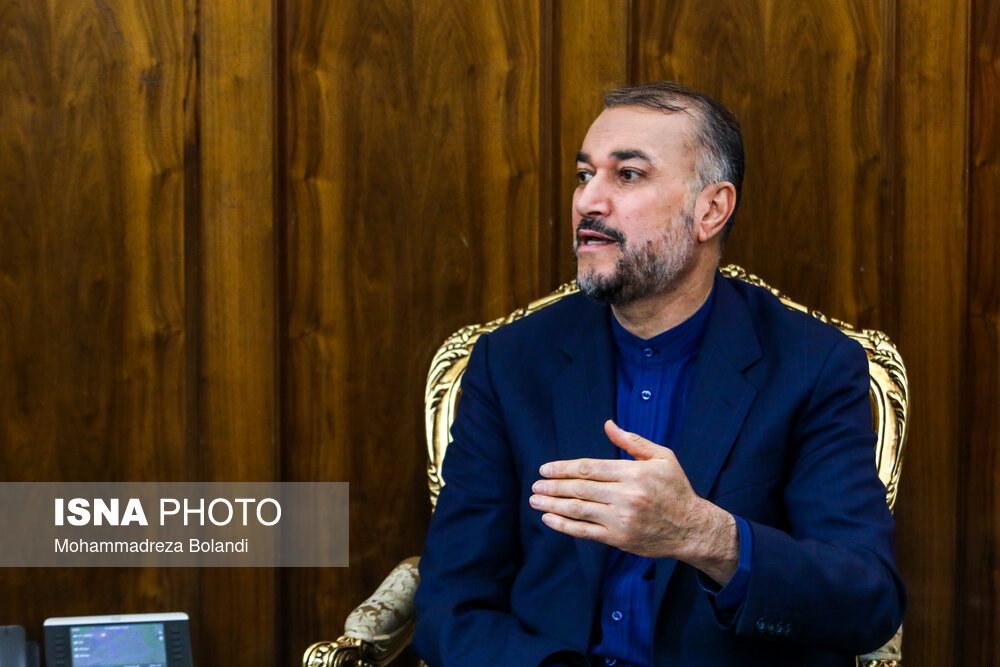The move could happen through the parliament as some politicians in Tehran are growing increasingly impatient with the unending talks, Amirabdollahian said in an exclusive interview with Al Jazeera.
“In the parliament, there is this idea that the government should not perennially be in a path of negotiations to bring all parties back to the JCPOA,” he stated, referring to the Joint Comprehensive Plan of Action, the accord that the United States unilaterally abandoned in 2018.
According to the foreign minister, some factions of Iran’s parliament are pushing for proposals and legislation that could make the government’s work “more difficult” in continuing the negotiations.
“The window of the talks to return to the JCPOA won’t remain open forever,” he added.
Amirabdollahian also reiterated Tehran’s position that Western allies have been behind “riots” in the country in the past few months, which he also blamed for hindering the talks.
“We are now at a point where achieving an agreement can be within reach, on the condition that the American side acts realistically,” he stressed.
According to the foreign minister, technical talks with the International Atomic Energy Agency (IAEA) are continuing and Tehran plans to maintain cooperation with the global nuclear watchdog.
On exchanging prisoners with the US, the diplomat said, “We haven’t tied it to the JCPOA but there are technical issues that I hope lead to results.”
Negotiations between the parties to the nuclear deal kicked off in Vienna in April 2021 with the intention of bringing the US back into the agreement and putting an end to its “maximum pressure” campaign against Iran.
The discussions, however, have been at a standstill since August 2022 due to Washington’s insistence on not lifting all of the anti-Iran sanctions and offering the necessary guarantees that it will not exit the agreement again.
Despite the deadlock over the nuclear deal, Iran is moving ahead with efforts to improve its ties with regional rival Saudi Arabia and potentially other Arab states.
China brokered an agreement between Tehran and Riyadh earlier this month. The agreement committed their foreign ministries to reopen diplomatic missions within two months. Amirabdollahian and his Saudi counterpart, Faisal bin Farhan, are expected to meet before the end of Ramadan in late April to finalise the deal.
The kingdom has also invited Iranian President Ebrahim Raisi for a state visit, which he welcomed. Iran also plans to extend an invitation to the Saudi rulers, Amirabdollahian stated.
“We believe returning Tehran and Riyadh’s relations to a normal state will not only benefit both countries and nations, it will also benefit the region,” he added.
Tehran’s efforts have not been limited to Saudi Arabia, as it is also working on improving relations with the United Arab Emirates and Bahrain. Iran and Bahrain have been relaying messages through Oman, Amirabdollahian noted, and were in the process of sending delegations to visit embassies and discuss prospects of normalising diplomatic relations.
The foreign minister also held talks with the leaders of Jordan and Egypt during an Iraq-focused conference in December and expressed willingness to hold more talks.
“Fast developments are taking place across the region. Perhaps 10 years ago, there were crises happening fast in the region, in a way that political solutions had fallen behind,” he stated.
“But now, the region is nearing a higher understanding of the realities, and international developments and the region’s better understanding of them are encouraging everyone to focus on dialogue, peace and security across the region. Now, there is a new atmosphere of dialogue and cooperation facing the region,” he added.
